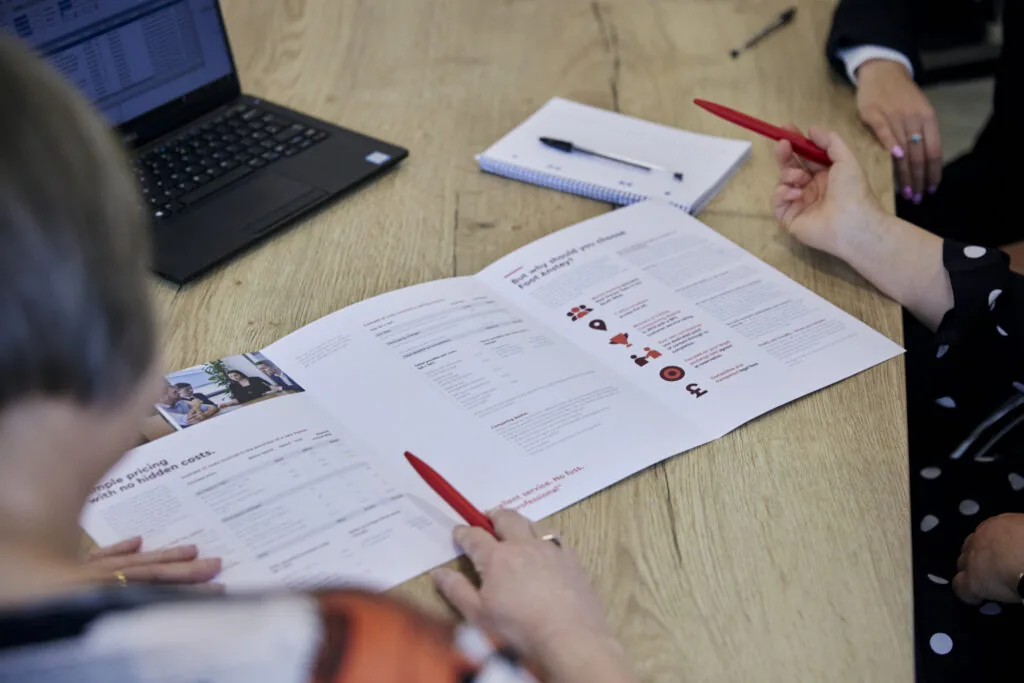
Coronavirus: Powers of attorney and managing your life and finances if you’re ill or isolating

Social distancing, self-isolation and possibly even a stay in hospital all have the potential to make it much more difficult to manage your affairs. Whilst friends and family will undoubtedly pitch in during these difficult times, there are some decisions which, under UK law, we can only normally make for ourselves.
Here is a non-exhaustive list of some of these activities:
- Opening or closing a bank account
- Moving money between accounts, including to pay bills
- Collecting pensions and benefits
- Deciding where to live and selling, buying, renting or leasing property, including renewing or ending a tenancy
- Arranging and consenting to medical treatment and care
- Managing a company of which you're a director
- Managing a trust of which you're a trustee
Because of the coronavirus epidemic, a lot of people are asking us whether they can legally delegate any of these decisions to a friend, family member or even a professional such as a solicitor. This is completely understandable – it's a difficult time for everyone and we understand that you may have specific concerns about your finances or health and care decisions.
A practical solution to this issue is a power of attorney – a legal document that delegates some or all of your decision-making powers to someone else so they can act on your behalf. You can create different powers of attorney to allow someone else to make business and financial decisions for you, or health and welfare decisions.
We have put together some information below on powers of attorney, which we hope will help if you are indeed worried about managing your affairs during the coronavirus epidemic.
Powers of attorney for finance and business decisions during the coronavirus epidemic
You may be concerned about the ability to run your business while still complying with the Government's latest instructions to "stay at home".
For example, you may be able to work safely at home, but you face a practical issue in arranging for documents to be signed. Alternatively, you may be self-isolating and worried about the ability of a family member being able to assist you with your finances and liaise with the bank on your behalf.
There are two powers of attorney which can help you deal with these problems and one which, if you've already got it in place, may do the same. There is also a separate power of attorney which allows you to delegate authority for managing a trust.
Let's take a more detailed look at these different powers of attorney and how they could be useful during the coronavirus epidemic.
General Powers of Attorney
You can put in place a General Power of Attorney to appoint an attorney to deal with your property and financial affairs or for a specific commercial purpose. The document can be drafted widely, to enable your attorney to do anything lawful on your behalf, or it can be more limited, so you restrict their authority to a particular matter or series of transactions.
General Powers of Attorney will no longer be valid in the event that you lose capacity to make decisions for yourself.
Lasting Powers of Attorney for Property and Financial Affairs
Lasting Powers of Attorney enable you to appoint an attorney to assist you with your property and financial affairs. The crucial difference between Lasting Powers of Attorney and General Powers of Attorney is that Lasting Powers of Attorney can continue to be used once you have lost mental capacity.
Lasting Powers of Attorney need to be registered with the Office of the Public Guardian before they can be used, and the registration process itself can take 6-8 weeks.
It is possible to put in place a Lasting Power of Attorney for Property and Financial Affairs for your personal assets and separate document for your business. If you are a business owner and you become incapacitated, a Lasting Power of Attorney which covers your business means that you will have thought about and appointed an appropriate person to take over on your behalf. This will help to ensure continuity and allow essential business operations to continue. Putting in place a business Lasting Power of Attorney would not affect your ability to continue to manage the business whilst you are still able to do so; it is a safeguard for the future.
In light of the current situation with COVID-19, and due to the relatively long registration period for Lasting Powers of Attorney, you may wish to put in place a General Power of Attorney as an interim measure, with the Lasting Power of Attorney becoming effective once the registration has been completed.
Enduring Powers of Attorney
These documents have been replaced by Lasting Powers of Attorney for Property and Financial Affairs; however, if you signed an Enduring Power of Attorney before 1 October 2007, the document should still be valid. Enduring Powers of Attorney can only be registered with the Office of the Public Guardian when your attorney believes that you are becoming or have become unable to manage your own affairs.
Although it is no longer possible to put in place new Enduring Powers of Attorney, it is worth reviewing your current document to ensure that it is still in accordance with your wishes. If not, you should consider replacing it with a Lasting Power of Attorney.
Trustee Powers of Attorney
If you are a trustee, you can under the Trustee Act 1925 (and subject to any provisions in the trust document) delegate your trustee powers to an attorney for up to twelve months at a time. This will ensure that decisions about the trust can continue to be made and the trustee duties fulfilled.
Power of Attorney for Health and Welfare decisions
Powers of attorney have uses beyond your finances, business and property. A health and welfare Lasting Power of Attorney also allows a loved one or friend to make a decision for you about care or treatment if you don't have the capacity to do so yourself. This is a separate document to the property and finances Lasting Power of Attorney.
Your attorneys would act in your best interests and ensure that you are given the care you would have chosen for yourself.
If you feel that one or more of the powers of attorney we've described here would be useful for you and give you peace of mind, we are happy to help you draw one up. You can email [email protected] and we'll book a virtual appointment with you to run through what you need.













